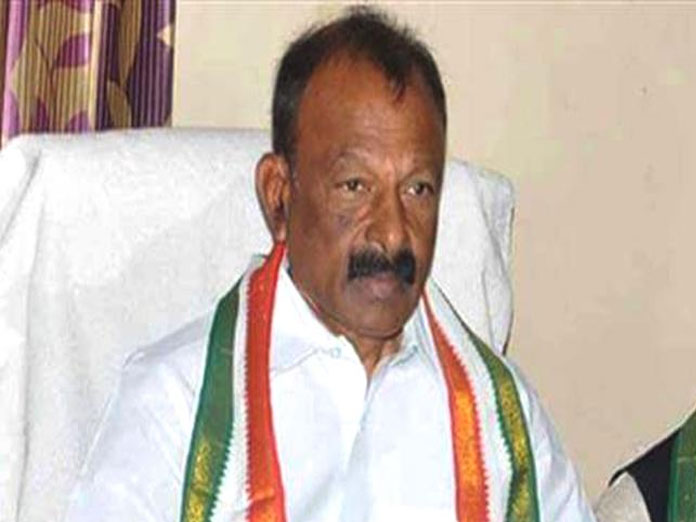
No takers for Andhra Pradesh Congress chief’s post

Over ten weeks after the Andhra Pradesh Congress Committee president N Raghuveera Reddy resigned, owning moral responsibility for the party’s poor showing in the elections, there are still no takers for the post.
This shows how the morale of the party is at its lowest ebb.
Raghuveera Reddy, a former minister from Anantapur district, was the first PCC chief in the country to quit the post on May 19, four days before the counting of votes was taken up. Soon after the April 11 simultaneous elections, he realised that the party was staring at a humiliating defeat for the second time in a row after its drubbing in the 2014 polls.
Congress draws blank
The PCC chief’s premonition came true as the party drew blank in both the Assembly and Lok Sabha. The YSR Congress Party, an offshoot of the Congress headed by YS Jagan Mohan Reddy, swept the polls, bagging 151 seats in the 175-member Assembly and 22 out of the total 25 LS seats.
Despite his reminders, the party high command has so far not responded to his request to be relieved of the responsibility. “I was the first PCC chief in the country to have resigned owning to moral responsibility for the party’s poor performance. I am yet to hear from them,” said Reddy, a four-time MLA who was appointed the president of the AP Congress unit in March 2014.
No contenders for the post
Raghuveera Reddy had met K Venugopal, AICC general secretary, a few weeks ago and requested for some other leader to be appointed as the PCC chief. But, there is no response from the central leadership, nor has there been any contender for the post.
“I sent a reminder to the party high command again last month, requesting it to accept my resignation. But there is no action on my request,” he added.
This reflects the pathetic state of affairs in the state unit that was once credited with the highest contribution of MPs to the UPA kitty. In the combined AP, the state unit had won 29 and 31 LS seats in 2004 and 2009 elections respectively out of 42 from the state.
With no end in sight for the leadership vacuum at the national level, a deep sense of despondency has crept into the state unit. So much so that there are no takers for the post of the PCC chief. This is in sharp contrast to the intense lobbying that used to be the norm in the past.
Worst ever performance
The Congress got 3.68 lakh votes, constituting just 1.17% of the total 3.13 crore votes cast in the state in the April 11 polls. This was worse than its performance in the 2014 elections when it bore the brunt of the public anger over bifurcation of Andhra Pradesh to carve out separate Telangana state. The party had then got 8.02 lakh votes, indicating that it has lost more ground in the last five years.
The party leaders feel that unless the leadership issue at the national level is resolved, there is no possibility of finding a successor to Reddy. “We are expecting the Congress Working Committee to take a call after the Parliament session ends,” the party veteran and former MP Dr Chinta Mohan said.
“Ever since the division of AP in 2014, the Congress has been on a terminal decline. Almost the entire cadre has migrated to the YSR Congress,” political analyst K Nageshwar said.
Telangana offers no comfort
The situation is equally pathetic in Telangana where the Congress suffered major desertions. As many as 12 of its 19 MLAs switched over to the ruling Telangana Rashtra Samithi (TRS) in batches.
Despite granting statehood for Telangana during the UPA-II in 2014, the grand old party failed to capitalise on it but allowed the TRS supremo K Chandrasekhar Rao to walk away with all the credit and reap electoral benefits by positioning himself as the architect of the new state.
The party could win just two LS seats in the 2014 elections while the TRS walked away with 12. It was a poor show in the Assembly polls as well with the opposition party managing to win 21 seats.
The absence of a strong and charismatic regional leader with a state-wide appeal had a telling effect. The party had, over the years, failed to nurture strong regional leaders who could take independent decisions and stand up to the emergence of a formidable regional player. Added to the party’s woes were fierce infighting and groupism and lack of a cohesive campaign strategy.

